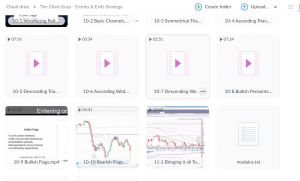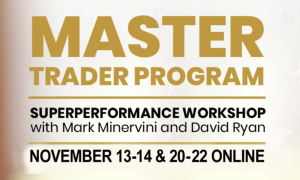Picture Perfect Trading by Larry Williams
In Picture Perfect Trading, Larry Williams offers an in-depth exploration of the intricate world of trading, focusing on how one can profit from human emotions, patterns, trends, and fundamental realities. This course is designed to provide traders with the tools and insights needed to navigate the unpredictable nature of the market and achieve long-term success.
Key Concepts and Focus Areas
- Human Emotions and Patterns: Williams emphasizes the significance of understanding and leveraging human emotions and market patterns. Recognizing these elements can provide traders with a competitive edge.
- Market Trends and Gaps: Identifying and capitalizing on trends and gaps is a crucial part of the strategy presented. These indicators can help traders make informed decisions.
- Fundamental Realities: The course delves into the importance of fundamental factors such as interest rates, earnings, and the actions of institutional investors (super smart money). Understanding these realities is essential for informed trading.
Trading Methods and Theories
Williams shares his unique theories and opinions on trading methods, emphasizing a pragmatic approach rather than relying on abstract psychological concepts. He insists that trading success comes from practical knowledge and disciplined execution.
Introduction by Larry Williams
Taking the Next Step to Successful Trading for the Rest of Your Life
Williams begins with a provocative introduction, challenging common misconceptions about trading psychology. He argues that market success is not influenced by personal background or inner desires but by understanding the market’s inherent randomness and human emotion.
- Market Complexity: Williams describes the market as “a collision of random events, spiced with human emotions and fundamental realities.” He stresses the importance of accepting the market’s unpredictability to become a successful trader.
Key Lessons and Principles
- Cyclic Nature of Profits and Losses:
- Profits and losses in trading are cyclical. Recognizing this can help traders maintain perspective during both good and bad times.
- Inquiry and Response:
- Success stems from asking the right questions and responding appropriately to market conditions.
- Embracing Randomness:
- Traders must accept that randomness is an intrinsic part of the market, emphasizing the need for robust risk management and stop losses.
- Trend Following:
- Trends are the foundation of all profits. Understanding and following market trends is crucial for consistent success.
- Consistency and Organization:
- Consistency and organization are paramount. Traders should strive to maintain a disciplined approach, avoiding the common pitfalls of inconsistency.
- Patience:
- Lack of patience is a guaranteed path to failure. Traders must cultivate patience to wait for the right opportunities.
- Market Leeway:
- Giving the market leeway, combined with the strategic use of stop losses, is essential for navigating its unpredictability.
Practical Advice for Traders
- Do the Opposite:
- Williams advises traders to often do the opposite of what their instincts or previous actions suggest, promoting a contrarian approach to avoid common mistakes.
- Critical Thinking Over Expert Opinion:
- He emphasizes critical thinking and skepticism towards so-called experts, highlighting the importance of personal analysis over external advice.
- Emotional Control:
- Successful trading requires emotional control. Williams advocates for detaching emotions from trading decisions, akin to playing poker without revealing one’s hand.
Conclusion
Picture Perfect Trading by Larry Williams is a comprehensive course that equips traders with practical strategies and a realistic understanding of the market. By focusing on the interplay between human emotions, market patterns, and fundamental factors, Williams provides a roadmap for navigating the complexities of trading. Emphasizing consistency, patience, and critical thinking, this course aims to transform traders into disciplined and successful market participants.


 Over 1.000 comments
Over 1.000 comments










